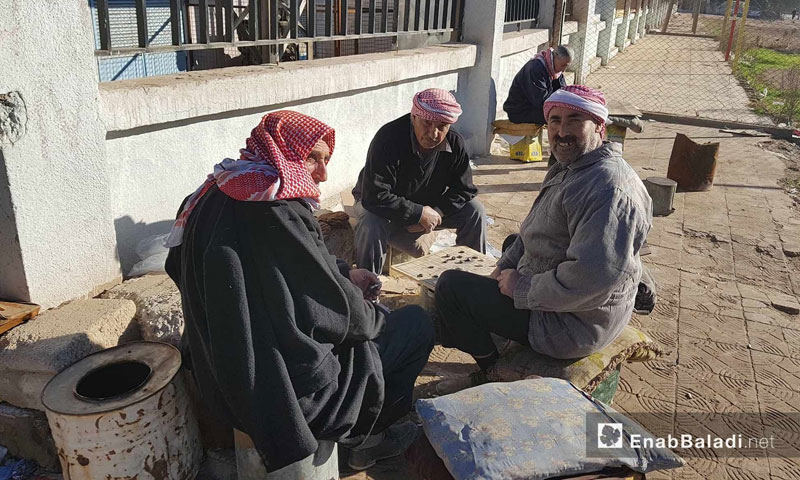That who lives in the city of Qamishli, in the Syrian Jazera, does not sense the commotion that is taking over social media platforms these days, after videos, exchanged by Arab and Kurdish activists, have triggered an intricate clamor and anger that later own transformed to a media war and mutual accusations.
The controversy started with the beginning of the Turkey backed, “Olive Branch” Operation, in Afrin, when activists published a video of the female Kurdish fighter that has been mutilated by “Free army” fighters in Afrin, before an older video that presented violations on the part of the Kurdish “People’s Protection Units,” appeared and went viral showing its fighters roaming Afrin’s streets accompanying a car loaded with dozens of bodies belonging to “Free Army” fighters, after they have been killed near the town of Ayn Daqnah in Northern Aleppo, in April 2016.
Publishing these videos triggered the wrath of many Arab and Kurdish activists, some of whom reacted using enticing words, amidst other people’s fear of their change into hate between the two sides and their ability to widen the chasm, deepened by political and military orientations which sometimes depend on a nationalist and a racist discourse.
A Political not a Social Discourse
Enab Baladi interviewed activists and citizens in Qamishli to examine their opinions and attitudes about the effect of these videos on the relationship between the Arab and Kurdish societies. Hamberfan Mohammad, a Kurdish activist, said: “These videos would not influence the Arab-Kurdish relations, but the political relations between them, for, in the meantime, the hate speech is political rather than social.”
Mohammad also told Enab Baladi that “the social status between the Kurds, Arabs, Syriac and Assyrians is healthy to a certain extent. There is coexistence and civil peace above the bottom line, in addition to the filial relations that connect a number of the Arab and Kurdish tribes and relations with the Syriac and Assyrian families,” stressing that the dispute is still limited to the military media and that the presence of certain military tendencies cannot be generalized on a whole ethnic component.
To Enab Baladi, a member of the Assyrian civil Organization, Orshina Hadad, assured that this discourse would not affect the social relation between the Kurds, Arabs and Assyrians, pointing out that “the citizens are not naïve and that the militarization of media would not impact them.”
Fearing the Evocation of History
This tension would leave a negative trace on both sides, according to the civil activist, Randa Moussa who confirmed to Enab Baladi that the congestion will dig in the Kurds’ history to bring their suffering to the surface, including repression, marginalization, deprivation of humanitarian and civil rights for decades, as a result for the arbitrary and systematic approach against them, considering that “all those who arrive in power, erase, marginalize and alienate the identity of the other within the Syrian geography.”
For her part, Zaynab al-Sayed believes that this discourse would negatively affect the relations in the future, because citizens are affected by social media which turned into a stage to exchange accusations, through which Arabs and Kurds call each other traitors, regardless of the side that is spreading these ideas.
Do Organizations Play a Role in This?
In the shadow of the hate speech, there should be awareness programs to alienate the local people from the negative effect of politics. This might be achieved through training workshops and educational sessions that constitute of all the social segments in the area, according to Hamberfan Mohammad, who confirmed the presence of a joint effort with local social media outlets to restrict this speech and to spread the culture of civil peace and coexistence.
Electronic campaigns can also be conducted to spread social awareness; seminars and forums can be held to reduce the sharpness of this discourse and resist it, in addition to forming social networks of both Arabs and Kurds and launching campaigns to decrease the tension, similar to “Jijack, We Are Brothers,” according to what the activist Fahed Aziz has Told Enab Baladi.
For her part, activist Randa Moussa believes that the solution is to plant the culture of loving homeland and belonging by helping the two sides know their civil rights and raising their awareness that only the sovereignty of law can achieve equality between them and ensure them all their rights without harming or marginalizing the other side in the equation.
Mohammad also stressed this and said that the love for homeland starts with the individual’s right to have a homeland and to own full rights of citizens’, let them be social, cultural or political, and to address individuals as partners in building official establishments and creating the constitution, laws and legislation, pointing out that religion must be separated from the international laws and the need to annihilate discriminate according to religion or ethnicity.

